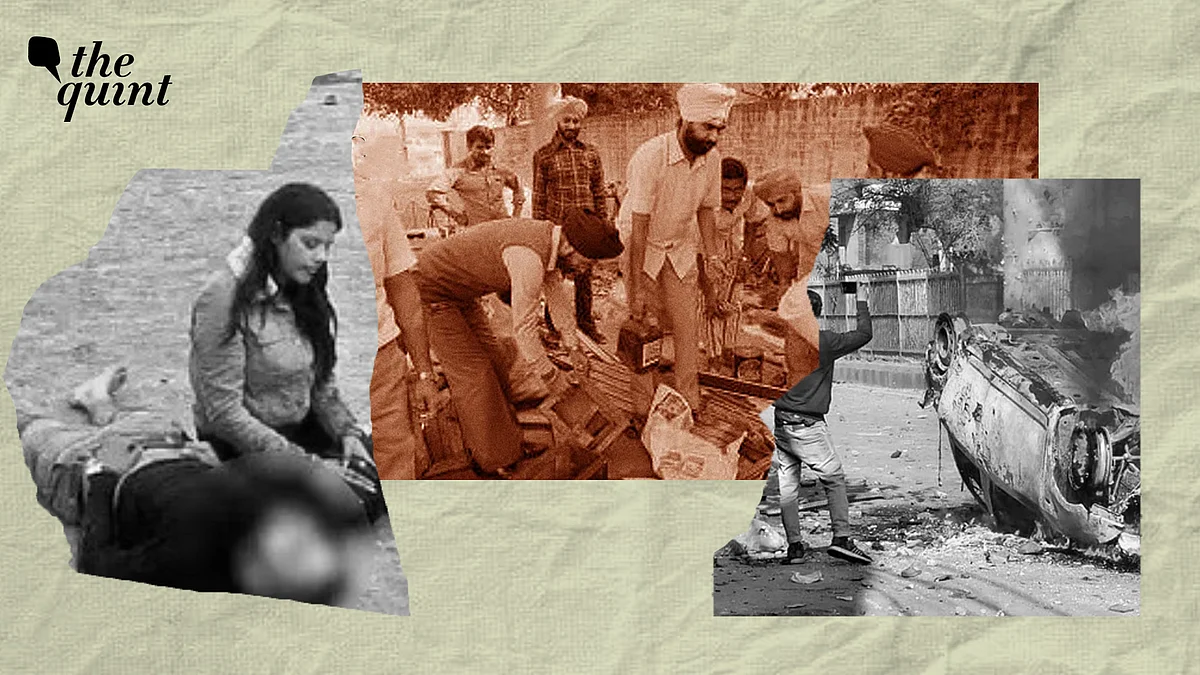
From Partition to Pahalgam: What We Refuse to See About Ourselves
Do you think darkness only resides in others?

advertisement
I was 10 or 11 and I used to cut out news reports of communal violence or editorials published about the same in newspapers, and paste them in a scrapbook.
Why? When did it start? I am not sure. I was born in the 1980s, but I think it started in 1947—when both my grandparents moved to what was still India from what was, all of a sudden, no longer India. They survived the mass murder, rape, and uprooting of millions, stuffed into a single word—Partition.
We heard stories of my uncle pulling out Sikhs from homes set on fire by Hindus. Stories of Sikhs hiding in our home during 1984. Stories of family friends, who deleted ik onkar written outside their house. Sikh friends who cut their hair and their children’s hair, so that they could pass off as Hindus, and escape murder. Stories of Hindu men butchered by other men, because those Hindu men refused to believe that they were Hindus and not Sikhs who had just cut their hair.
The Fear of "Another Partition"
Cut to the anti-National Register of Citizens (NRC), Citizenship Amendment Act (CAA), National Population Register (NPR) protests in Delhi, in 2020.
To my surprise, I ran into conservative, middle aged, Bharatiya Janata Party (BJP)-voting men standing there in protest. I asked a few why they were here. One phrase always formed a part of the answer- “doosra batwaara”.
At the protest area, there was a makeshift stage. Person after person would get on stage and speak about communal harmony and their determination to fight communalism. A very old Sikh man got on stage one day. He started:
"I am in my 90s, I don’t get good sleep. I don’t get good sleep. I want to tell you, that I am from Amritsar. Amritsar means the pure land. I have made this land impure. During the partition I killed my Muslim brothers, I raped my Muslim sisters. Their blood flowed in Amritsar. I made Amritsar impure with the evil acts I committed. I have come here, to say this, to give my life protecting the protestors here. I feel maybe if I tell you, maybe if I can be of use, I will be able to sleep peacefully."
The crowd was stunned into silence. I was worried about the reaction he would get once he climbed down from that stage.
When he got off the stage he was hugged by elderly Muslim men. They were in tears, and so was he. Muslim women approached him with frooti and something to eat in a plate; they told him he was their brother. Goosebumps is a small word for what I am feeling as I tap keys on my keyboard. I don’t think anyone else demonstrated more courage that he did.
Darkness Within Our Own Walls
I shared this incident, which affected me deeply, with my aunt, who has always been my moral compass. She told me, for the first time in my life, of relatives we had—I had—who did the killing in 1947 and in 1984. I was shocked; this was an outlier in all the noble hero/victim stories I had heard since my childhood.
I remembered Bapu, Mahatma Gandhi, who told everyone that the message of the Gita is to fight and overcome the darkness within.
In 2021, there was mass violence in Delhi. Thousands, mostly Muslims, were uprooted and displaced. My eyes witnessed hundreds of people walking with their belongings wrapped in bedsheets carried on their backs. Just like we saw far more people do the same, during the COVID-19 lockdown.
I saw burnt homes as far as I could see. I saw people stand in the entrance of those burnt homes—things I had only heard of, at home. The violence raged for three days in “my city”, the city where the most powerful people in India live, and no one stopped it.
I had always thought that when the day comes, I will, like my uncle Rajinder Arora, do the courageous thing. I could not. My self-loathing, disgust with myself, the constant accusations of cowardice, buzdili, haunted me, until I spent some time doing some relief work there, and even after.
I was diagnosed with post-traumatic stress disorder (PTSD). I read about the journalist who was brutally beaten even after they stripped him naked to check if he was Hindu. Even after they asked him to chant the Hanuman Chalisa. Even after he cried and said he was a Brahmin.
The Myth of Unprecedented Brutality
From a report in The Guardian:
Imran Khan, 30, a street hawker did not have the same luck.
“Some of them forced me to pull down my trousers,” he said. “They started beating me violently as soon as they became sure that I was Muslim.”
Muskan, a 20-year-old Muslim girl who was eight months pregnant, lay in a critical condition in a hospital bed after she was set upon by a Hindu mob. “They threw me to the ground, kicked my stomach and my whole body,” she whispered. “I pleaded with them not to harm my baby, I said ‘please, please’ over and over, but they kept kicking.”
When I saw this shock and horror, this articulated belief that the coldness, the execution was something unprecedented, I went down memory lane—history, old history, lived history—and have just my aunt’s message for anyone who cares to listen: do you think darkness only resides in others?
(The author is a lawyer and research consultant based in Mumbai. This is an opinion piece, and the views expressed are the author’s own. The Quint neither endorses nor is responsible for them.)
- Access to all paywalled content on site
- Ad-free experience across The Quint
- Early previews of our Special Projects
Published: undefined